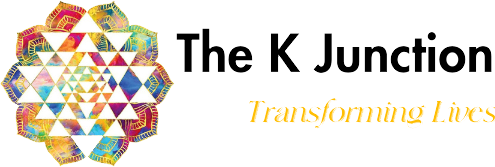How the quality of early childhood education can cross generation

This article written by Kuhoo R Gupta was originally published in indiatoday . Read the original article HERE >
Holistic education starts at home and children can be taught via music, words, daily chores, interacting with people around them, books and nature which will enhance their creativity and empathetic nature.
A remote district of Maharashtra’s Palghar has caught UNICEF’s eye via its early education practices where parents and elders of the community are teaching their young children about gravity, colors, shapes and many more via daily chores of their lives. This shows that early childhood education should be where children interact with the elements around them and engage in practical activities which fine tunes their gross & fine motor skills and cognitive abilities.
Holistic education starts at home and children can be taught via music, words, daily chores, interacting with people around them, books and nature which will enhance their creativity and empathetic nature.
A Holistic and Practical Learning
A qualitative education from the academic standpoint is something that answers the ‘why’ behind a statement. Teachers and parents can start by using phonetics. Instead of introducing the letter A, for now, a child can be introduced to the sound ‘AE’ for an apple. Since he can hear it, he can believe it, and therefore, he can imagine it, thus, fulfilling the true purpose of education.
Similarly, while teaching numbers, young children can be taught about numbers using real objects like 2 bananas or 1 orange.
How Early Childhood Education Affects Generations?
According to scientific and psychological researches, a person’s belief systems and important personality traits are very well developed between the ages of 0 to 7 years. At the same time, it is during this time, that a child’s mind is most impressionable.
Moral values, ethical habits, etiquette and of course, quality scholastic aptitude help build the child’s self-esteem, and humanistic nature. Moreover, right education is led by curiosity and self-learning.
These nuances combined with how we experienced childhood defines the way we parent our children which defines the upbringing of generations to come.
Factors Affecting Early Education
Early education is very malleable and can be imprinted upon by several positive and negative factors. These in-turn affect how the child views learning. Some of the factors affecting early education are:
- In-the-womb to post-delivery experiences
- The energy & environment at home.
- Relationship of parents at home.
- School and teachers
In case of a negative factors, a teacher should be able to communicate with the child, helping him process his emotions and overcome the adverse situation back home.
The Role of Schools, Teachers, and Parents
- Teachers: For teachers, it is essential to unlearn the older pedagogy and focus more on helping children to be more innovative, creative & adaptable.
- Schools: Schools should focus on creating a holistic learning atmosphere which goes beyond the conventional curricula and offer training to teachers that go beyond the archaic B.Ed training.
- Parents: Before raising a child, parents should raise their own awareness as an individual & heal their insecurities first.
The Final Takeaway
The present & future of early childhood education is a holistic, hands-on, practical education system where the overall personality of the child is taken into consideration because that’s what the future wants from the kids in this era of artificial intelligence, robotics & much more.
The article published on Jul 8, 2019 in the www.indiatoday.in website, regarding “How the quality of early childhood education can cross generation” by Kuhoo Gupta.

